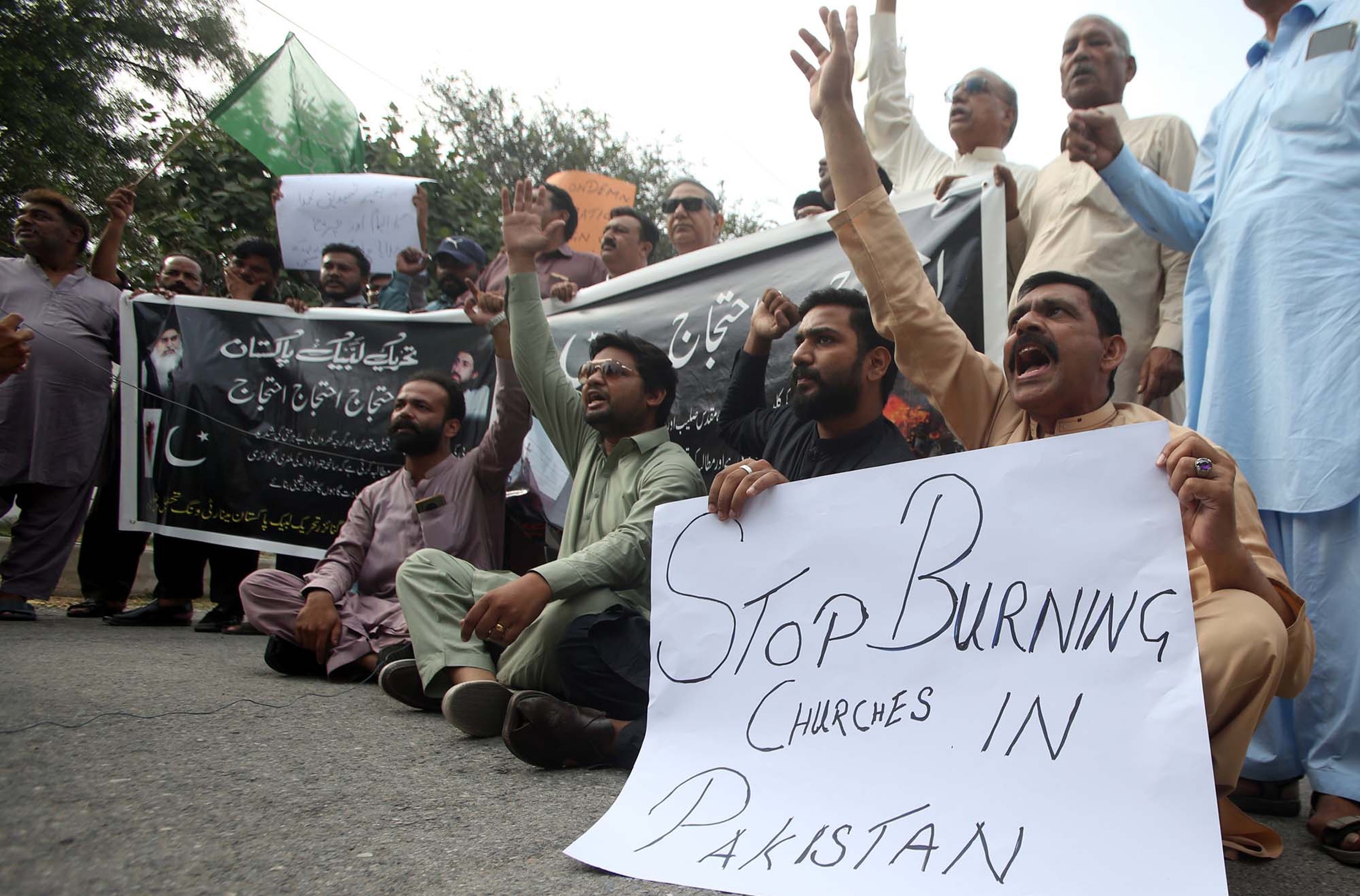The conditions of freedom of religion or belief in Pakistan raises significant concerns. Under the shadow of blasphemy laws, Muslim activists have escalated to acts of violence, such as setting fire to churches and homes. These actions have instilled a deep sense of fear among religious minorities.
Blasphemy laws are legal provisions that criminalize speech, actions, or expressions deemed disrespectful or offensive to a particular religion or its deities, religious symbols, or core beliefs. These laws step on human rights like freedom of religion or belief and freedom of expression. In Pakistan, blasphemy legislation is often used as a weapon against religious minorities such as Christians, Ahmadis, Hindus, and Sikhs.
The recent developments have led to a wave of violence in Jaranwala. 19 churches were completely burned down, and 89 Christian homes were razed to the ground. The leaders of the mob are not particularly concerned about the consequences. The incident in Jaranwala is part of a pattern in Pakistan of oppression and violence, paving the way for discrimination and totalitarianism.
In January of this year, the Pakistani Senate unanimously approved a law that expanded blasphemy laws. What once primarily concerned minorities is now extended to anyone accused of blasphemy.
Is freedom of religion or belief for sale?
The right to freedom of religion or belief is often misunderstood as protection for religions and religious beliefs. It can then be used to violate other human rights. However, Article 18 of the Universal Declaration of Human Rights pertains to “freedom of thought, conscience, and religion.” This includes the freedom to practice one’s faith both privately and publicly, as well as the freedom to change religion or belief. It does not protect religion or religious institutions. Like all other human rights, this protects the rights and freedoms of individuals.
Human rights should not be compromised for one another. It’s not like shopping for groceries. Human rights aren’t commodities you can measure or selectively purchase. You cannot pick 100g of freedom of expression, 500g of freedom of religion or belief, and two boxes of gender equality – and then get a receipt at the checkout declaring that you comply with human rights.
This metaphor reflects how many view human rights. Some stores sell diluted rights and tempt them with false “human rights” labels. Politicians in Norway and elsewhere in the world should not participate in this. The right to freedom of religion or belief is inextricably linked to other human rights.
Closer than we think
The recent events in Pakistan are heartbreaking, but Pakistan is not a unique case. Blasphemy legislation exists in 40 percent of the world’s countries, as shown by a 2022 study from the Pew Research Center. Norway had a blasphemy clause, albeit a dormant one, until 2015.
The enforcement and punishment for blasphemy vary, ranging from fines to imprisonment, whipping, and even execution. In 2020, a Nigerian musician was sentenced to death for blaspheming the prophet. In 2023, a Polish court convicted two women for displaying an image of the Virgin Mary and Jesus with rainbow-colored halos during an LGBTQ+ parade, accusing them of “offending religious feelings.”
Blasphemy laws may seem outdated in Norway, but they are a contemporary trend. They challenge the freedom of expression and the freedom of religion or belief. The adverse development we see in Pakistan and several other countries can have regional and global consequences. The digital spread of information (and misinformation) intensifies the challenge. This is closer to us than we might think. It is evident in the developments in several European countries where these rights are under pressure. Therefore, Norwegian politicians should care about and protest against the church burnings in Pakistan.
Norwegian Politicians should stand guard
Next year’s elections in Pakistan could be crucial for the fate of minorities. The international community also plays a significant role in Pakistan’s blasphemy laws. Norwegian politicians, along with those from other democratic countries, can stand guard over human rights. Meanwhile, international silence can create space for increasing fundamentalism and extremism.
Norwegian politicians, born into a democratic system, should be aware of the risks blasphemy laws pose to democracy. Given Norway’s prominent international role, a clear stance by Norwegian politicians against the violations of freedom of religion or belief in Pakistan would resonate globally. It could inspire colleagues from other countries to do the same.
Human rights cannot be treated as something one picks from a grocery store shelf at will. If we allow it, the price might be too high.
Contact us
Employee
Sara Machado
Employee

